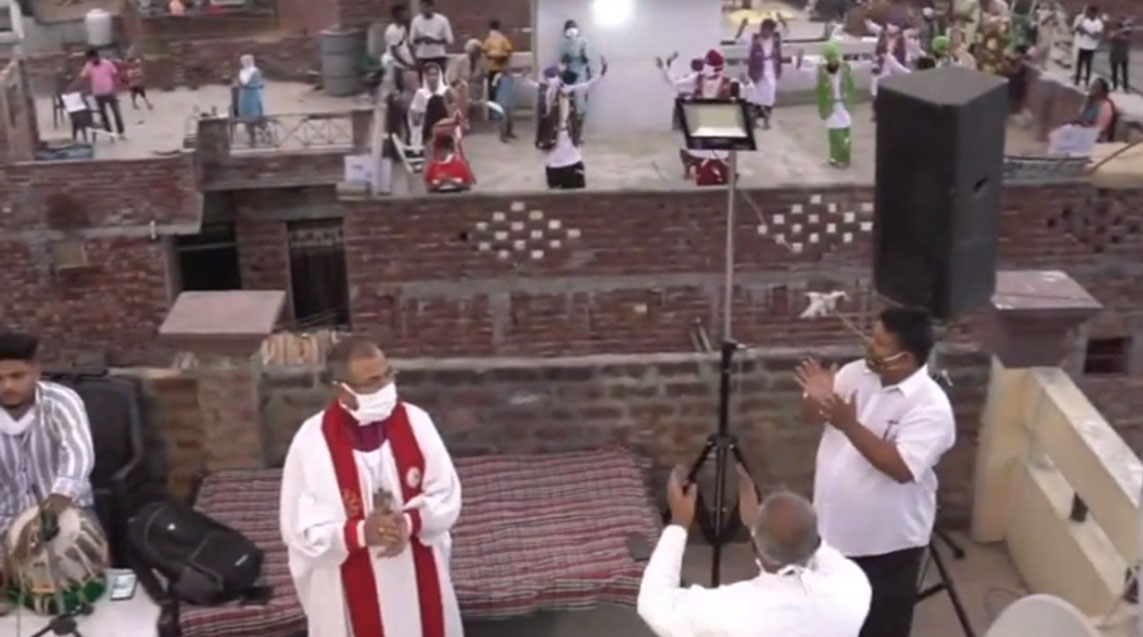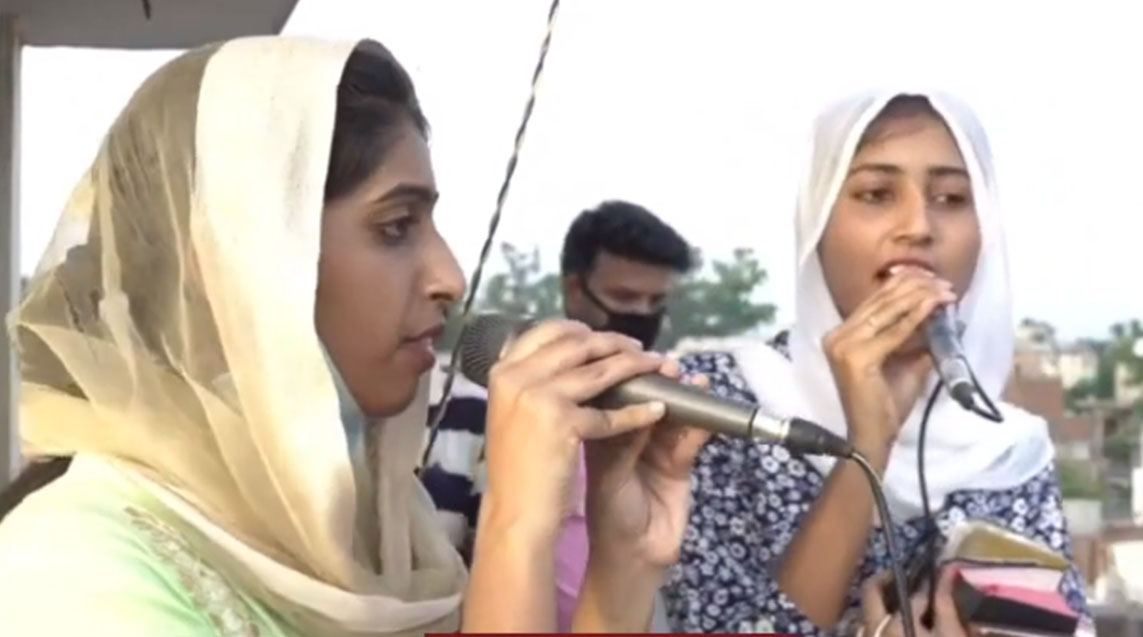Churches take to the rooftops in Northern India
The Bishop of Amritsar in the Church of North India explains how when churches were closed, the diocese moved their services onto the rooftops of cities and villages to continue worshipping and sharing the gospel in the Covid-19 era.
Bishop Pradeep Samantaroy, who likes to be known as Bishop Bunu, oversees churches across the three Indian states of Punjab, Himachal Pradesh, and Jammu and Kashmir. The Diocese of Amritsar has some 300 parishes, with the majority of the population belonging to the Hindu faith. There are also a significant number of other faiths including Muslims, Sikhs and those of no faith.
Bishop Bunu talked about how the church in India has continued its calling to share the gospel in a multifaith setting, despite lockdowns and curfews due to the recent pandemic.
“In a country like India, where we have almost all faiths represented, everyone is looking to the Christian community, with a very scrutinising eye of late. Therefore, the Christian community has to be visible, doing something practically good for the whole community, irrespective of caste, creed, religion, ethnicity, and every kind of difference that divides communities. It’s important that the gospel is seen, and not only heard; that is exactly what we’re trying to do.”

Bishop Bunu said Christian schools are one of the ways that the Church of North India is able to put its faith into practical action.
“We have schools that are about 150 years old, like the school in Jammu Kashmir in Srinagar, with 7,000 children. Everyday… the children say the Lord’s Prayer each morning in the assembly. And we thank God that we are able to do this. Some of the Christian hymns have been translated into Kashmiri language, and are sung by the children. It is a kind of silent evangelism, where with our presence we are witnessing, and when there is an earthquake, we are there, when there is flood, we are there.
“Even if we are not preaching Christ openly in the city squares and in public places, it is through the educational work and also through our medical work in hospitals, that we do evangelism and pray for people.”
What happened when the pandemic hit India?
“The pandemic came to India in the early part of last year. But the lockdown was announced on the 23rd of March. It was announced in the night, in fact, people didn’t have any time to prepare. So, the next morning when people woke up, everything was closed. Those who had food in their houses could manage, but others were stranded with trains and flights cancelled overnight.”
Despite a curfew, Bishop Bunu went into the city and found people stranded without food and water as they couldn’t get home because all transport had stopped.
“I talked to my colleagues and the next day we started cooking food. In our house, then the office staff volunteered also, we cooked and distributed food, including supplies for the police and the paramedics, because they were on duty without food. We distributed about 500 packets of food every day, and we would start cooking from five in the morning. It was my duty to start the cooking, making the Indian curry, so I would prepare the masala and all that. But then the families would chop onions and cut vegetables.”

In addition to the food distribution, the church organised a group of women who had lost their jobs, to start making masks. The church then distributed the masks and sanitizers along with the food.
“We started with zero funding, but we’ve never stopped. We gave out rice, wheat flour, pulses, salt, sugar, cooking oil, and many other things and we went out distributing in the villages. This went on for months. The food distribution has stopped now because people have access to food. But we have a 24/7 helpline number. So, people can phone us if their medicines are delayed, and we have Covid kits to hand out. If we know someone is affected by Covid and doesn’t have an oxygen metre or a thermometer, we have medical kits to help.”
When the pandemic restrictions came into effect, Bishop Bunu said Christians were badly affected as it was not possible to come together for corporate worship.
“We were cut off from each other, which had a tremendous emotional impact on people. And so we began looking for the ways and means to reach out to people. We thought, if we are not able to go to the church, could we bring the church to the people?”
As people were free to use the space in their own homes and most of the Indian houses in Punjab had flat roofs, the idea of rooftop services was born.

“We selected the tallest building in a village and invited people to come to the roofs of their own house, where they were secure and safe and we were not breaking rules. People were greatly encouraged, and we could see them joining in singing, clapping and dancing, and so happy to worship together.”
The rooftop services spread to other villages and areas including cities like Amritsar. Bishop Bunu said as well as encouraging Christians they became a way of spreading hope and sharing their faith.
“In the morning, at six o’clock when we start the service, it is quiet so your voice and the music go for miles. We have had compliments, even from people of other faiths, because they appreciated that we were praying for the victims of Covid, for the doctors, for the families and everyone who is affected. So, this is what we’ve been doing every Sunday morning at six.”

The diocese also runs online family services in the afternoons.
“I feel that this pandemic has given us the opportunity to rediscover the church. We are seeking cooperation and help from each other. We are acknowledging our need to be interdependent and to find ways to see positivity in the midst of suffering… With our mission engagements we are able to offer a little bit of relief to the people who are suffering, which is so gratifying.
“I find that God is working, giving us new tools, opening new windows, opening new doors, and therefore I’m not feeling desperate, but I thank God for the new world he is offering as his mission for the church.”
Find out more about the August theme
To view all of the articles and film for August visit our Bishops’ Conversations journey page here.


